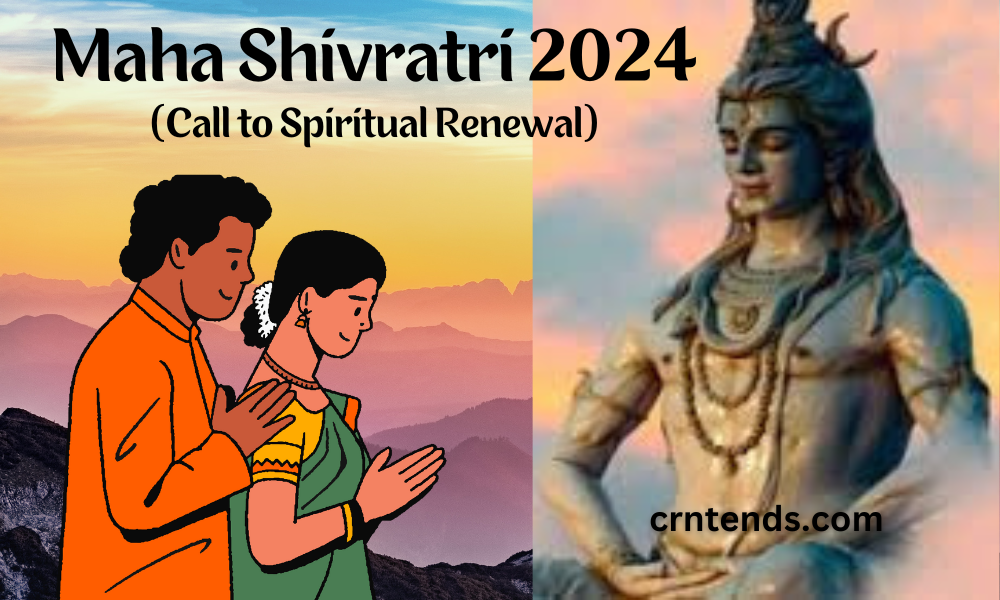In Hindu tradition, Maha Shivratri, or the great night of Lord Shiva, is very important. All around the nation, people commemorate this holiday with great zeal and dedication. As Maha Shivratri 2024 draws near, let’s examine the traditions, customs, and spiritual importance that surround this auspicious day.
Mahashivratri 2024
The Significance of Mahashivratri
Maha Shivratri, which translates to “the great night of Shiva,” is observed annually in reverence of Lord Shiva, one of the principal deities in Hinduism. It falls on the 14th day of the lunar month of Phalguna or Maagha, typically in February or March according to the Gregorian calendar. This auspicious occasion is believed to commemorate the day when Lord Shiva performed the cosmic dance of creation, preservation, and destruction.
Spiritual Observances: Devotees observe Maha Shivratri by fasting, meditating, and participating in prayers and rituals dedicated to Lord Shiva. Many devotees visit temples dedicated to Lord Shiva, where special ceremonies and pujas are conducted throughout the day and night. The atmosphere resonates with the chanting of mantras, the ringing of bells, and the offering of flowers and fruits to the deity.
The Night Vigil: One of the highlights of Maha Shivratri is the night vigil, where devotees stay awake throughout the night, engaging in prayers and devotional activities. It is believed that staying awake during this night vigil cleanses the soul and brings spiritual enlightenment. Temples remain open throughout the night, welcoming devotees who seek the blessings of Lord Shiva.
Rituals and Customs: Various rituals and customs are associated with Maha Shivratri. Some devotees perform Abhishekam, the ceremonial bathing of the Shiva Linga with milk, honey, yogurt, ghee, and water, symbolizing purification and offering gratitude to the deity. Others engage in chanting sacred hymns such as the “Om Namah Shivaya” mantra, believed to invoke the blessings of Lord Shiva.
Cultural Celebrations: Apart from its religious significance, Maha Shivratri is also a cultural extravaganza, with vibrant celebrations taking place across India. Decorative lights adorn temples and streets, and cultural performances depicting stories from Hindu mythology, particularly those related to Lord Shiva, are organized. People come together to celebrate the unity of community and faith.
Social Significance: Maha Shivratri transcends religious boundaries, bringing people from diverse backgrounds together in celebration. It fosters a sense of unity, compassion, and brotherhood among individuals, reinforcing the values of love, peace, and harmony.
Why is Mahashivratri Celebrated
Mahashivratri, or the “Great Night of Shiva,” is rooted in ancient Hindu mythology. According to legend, this auspicious night marks the wedding day of Lord Shiva, the Supreme Being, and Goddess Parvati, also known as Shakti or Devi. It is believed that on this night, Lord Shiva performed the divine dance of Tandava, symbolizing the cycle of creation, preservation, and destruction.
One of the most common rituals observed on Mahashivratri is the ‘Jaagran,’ where devotees stay awake all night, singing hymns and chanting prayers dedicated to Lord Shiva. Temples are adorned with colorful decorations, and elaborate ceremonies are conducted throughout the night. Devotees also visit Shiva temples to offer milk, water, bael leaves, and other traditional items as a gesture of reverence.
When is Mahashivratri celebrated
It falls on the 14th day of the dark fortnight of the month of Phalguna (February or March) in the Hindu calendar.
Mahashivratri 2024 – DATE: 8TH March 2024
This sacred occasion holds immense significance as it marks the convergence of cosmic energies, symbolizing the union of Lord Shiva, the supreme deity, and his consort, Goddess Parvati.
In essence, Mahashivratri is not just a festival; it is a celebration of the eternal bond between the divine masculine and feminine energies, a reminder of the omnipresent nature of the divine, and an opportunity for devotees to transcend worldly attachments and attain spiritual enlightenment. It is a time to rejoice, to introspect, and to revel in the divine presence of Lord Shiva, the embodiment of eternal bliss and supreme consciousness.
